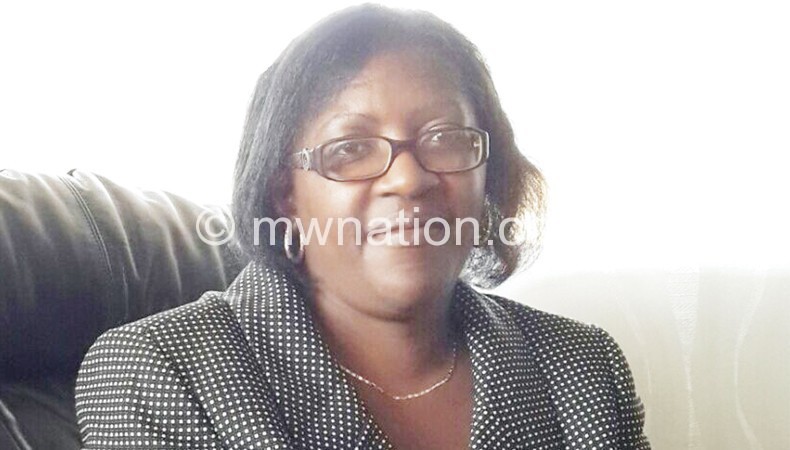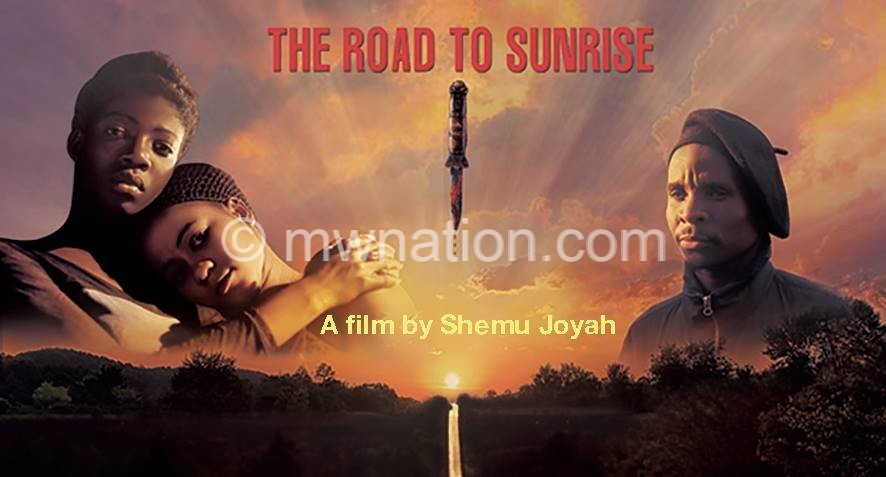Celebrating radio versatility
Over the years, scores of women broadcasters have been under pressure to sound more like their male counterparts. From the deep authoritative tones, others have even tried to sound like the colleagues of the opposite gender all to succeed.
There is one woman in Malawi, a versatile broadcasting legend who was naturally gifted that she would do everything in radio—from adverts, musical shows to talk shows.
Whatever she did, she was good at it. Although her career on radio radio was brief, she remained consistent and creative and fast turned into a mentor of several journalists.

to communicate to express rather than impress
She is also one of the pioneers of MBC Radio 2 FM, hired at its inception.
Grace Kadzakumanja is a working woman, teacher, wife, mother of two and grandmother. She describes herself as a determined, inquisitive and positive-minded individual who promotes harmony integrity and respect.
Through a friend at Malawi Broadcasting Corporation (MBC), Kadzakumanja chanced an opportunity in the programmes department.
“I went to work at MBC in 1997 when a good friend who was employed there informed me that there there were vacancies for programme presenters and producers and I should give it a try.
“I was very cautious about it, not sure whether I was confident enough to venture into such a field. I attended two comprehensive interviews and was among the few selected to work for MBC Radio 2 which was just starting. Therefore, I was one of the pioneers,” said Kadzakumanja.
Her journey at MBC was interesting, but her first days were challenging as she was conscious of what she was doing.
“At the beginning, it was like jumping into a deep pond, not knowing what you would find inside. Everything was new, starting from the work ethic, routine, relationships, and practical work. With time, and after colleagues kept encouraging me and assisting me, I got used to the work and became independent.
“It was a mixed experience. There were times when my supervisors would make me feel useless when mistakes were made, and other times when the younger colleagues would trust me and look up to me as a mentor. I learnt from some of my ex-students who included Prince Mtelera, Gospel Kazako and Walstone Sangala and I am glad I did. Some of the important lessons I learnt were working towards deadlines, preparation, the importance of listening and editing programmes as well as appreciating other people’s work,” she explains.
Apart from handling the hourly shifts as a continuity presenter, Kadzakumanja was involved in presenting a variety of programmes ranging from music to magazine programmes, documentaries, interviews and news reading: “There are so many programmes that I presented and the ones I remember are Career Guidance, Guest of the Week, Knowledge is Power, Call the Doctor, Oriental, Soca—a soul calypso musical show, jazz and soul music, Hits of the 80s, Mixed Bag, Childrens’ programmes, Ca va Malawi?—a French programme and Sunday Service. I enjoyed most of the programmes, especially Sounds for the Soul, Hits of the 80s and Soca.
“These programmes, together with Oriental Music which I used to present with Jeet Sidhu, were associated with me. I was also involved in organising continuity rosters, supervising shifts and attending to queries. I was inspired by Joshua Kambwiri, Davis Mussa, Mercy Chipeta, Marvin Hanke and Chimwemwe Banda, among others. I feel that they were all truly professional. Martin Chilimampunga, my boss, was also supportive,” she said.
Just like any other job, Kadzakumanja faced challenges in her career as a broadcaster.
“In general, the challenges I faced were those of scarcity of resources, inadequate team work, competition and having to bear with some individuals bent on pulling me down,” she said.
“Getting up as early as 2:30 am to be on time for the morning shift was a big challenge, missing holidays and family events because you had to handle a shifts and sometimes wishing you could do more to improve the quality of some programmes. On being a woman, I felt some programmes appeared to be male-dominated and I wished I could venture into more challenging tasks therefore some challenges were not met,” she adds.
At MBC, Kadzakumanja was employed as a presenter/producer and rose to the position of principal announcer by the time she left.
“I made a major decision to move out after six years when yet two other friends believed I had the potential to contribute to higher learning and encouraged me to venture into the academic field. However, I felt an urge to teach. Since I already had a background of teaching, training was not a problem for me. I felt the university would provide me more opportunities to advance my career and qualifications.
“I have been at the Polytechnic since 2003, teaching in the Language and Communication Department, but also had a chance to teach what I knew—broadcasting to diploma students in the Journalism department. I lectured part-time at Malawi Institute of Journalism for about six years and it was mainly Radio Production and News Reporting courses. I enjoyed sharing my practical experiences with upcoming journalists,” she stated.
Through her teaching, she has reached out to many of the current crop of successful journalists.
Apart from working at the Poly and MBC, she has also worked in the Ministry of Education where she taught English and French.
She remembers: “It has been a long while since I participated in any field of the arts. When I was in the Ministry of Education I was involved with the Association of the Teaching of English in Malawi in which the schools’ drama festivals was a component. I also once worked at the French Embassy in Lilongwe as a translator.”
Radio as a form of communication is an interesting medium for both the young and the old. Many people dream of being heard on radio and some professionals have either tried to go back to it after ears in the doldrums. Does she harbor such a wish?
“That is an interesting and tricky question that people usually ask me. Maybe I could contribute part time, for example news reading, interviews, documentaries or something like that. For music, I would rather just enjoy listening to it. Otherwise I prefer media training.
“Here at the Poly, a community radio station is in the pipeline, so watch this space.
“However, what I miss about being on air is the seriousness that goes with communicating well to a diverse audience, the discipline of choosing your language carefully, explaining in simple terms, translating messages into a local language and just making the audience feel good as they listen to you,” she said.
Her parting words to practicing and those wishing to be journalists is to always strive for the best.
“I would want to encourage upcoming broadcasters to be serious, more creative, natural and communicate to express rather than impress. It pains me terribly when I hear uncalled for mistakes in the form of mispronunciations and poor choice of vocabulary.





